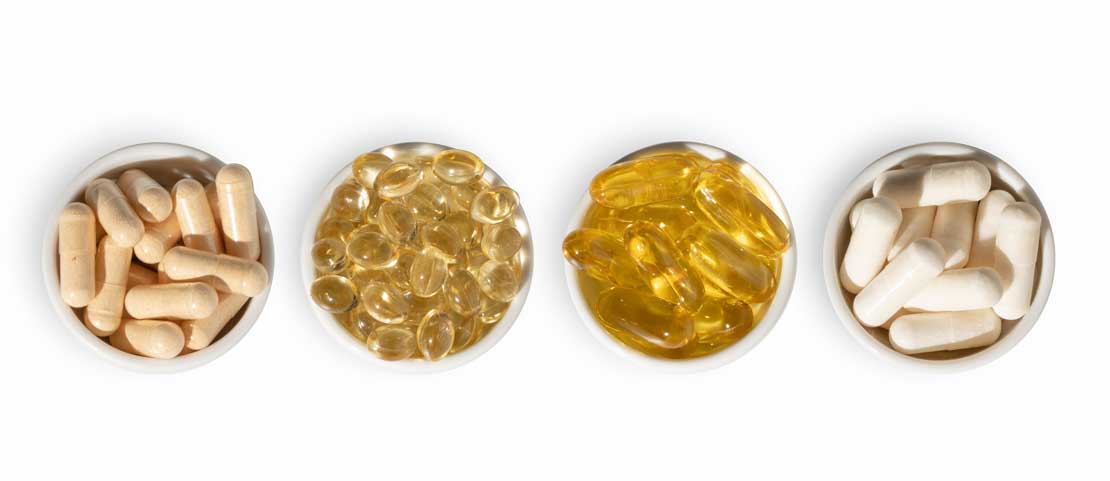

How Does Blockchain Technology Affect the Nutraceuticals Supply Chain?
End-to-end traceability is becoming central to ensuring food safety, quality, and sustainability. This level of transparency is also an important tool to build trust between organisations in the supply chain. Blockchain is a technology that allows this transparency, by providing all parties access to the same, authenticated information. This reduces the need for communication and the possibility of data errors in transit. Less time can be spent validating data and more can be spent on delivering goods and services, improving quality, and reducing costs.
Food regulations focus on food safety to preserve human health. However, human health can just as easily be compromised by profit-driven criminal infiltration at many levels of the global supply chain. Decentralised technologies, such as blockchain, allow cost-effective, transparent methods which are unable to be manipulated. Doing so means each point in the journey becomes traceable, from farm to fork.
Why is supply chain visibility important?
There is potential for consumer trust to lean towards products and brands that adopt this type of traceability technology, although the likelihood the immense cost of implementation will trickle down to affect the consumer is relatively high. As businesses are becoming globalised, there is an increased requirement for reliable and efficient supply chain management strategies – but what does this integration truly look like?
There are a few large organisations beginning to invest in types of blockchain technology to ensure this transparency, the likes of Walmart, Ford, UPS and FedEx to name a few. Walmart, for example, use blockchain technology to add transparency to its food supply ecosystem by digitising the entire food supply chain process. The company uses Hyperledger Fabric, a modular blockchain framework that acts as a foundation for developing blockchain-based products, solutions, and applications by using plug-and-play components. This functionality is designed for use in large private companies, and its integration into Walmart’s supply chain ensures a transparent, traceable, and reliable process for its products.
The main benefit for companies such as these is the ability for employees to track product origin. With this technology, it only takes a matter of seconds to scan dozens of products. One scan will result in a full understanding of where the item (e.g. fruit or vegetable) came from and where it currently is in transition, opposed to relying on days of step-by-step tracking. Other benefits include reduced paper waste, process automation, and trusted supply chain transparency.
Back in 2020, multinational food-products corporation, Danone, began using its own ‘Track & Connect’ service – a blockchain food traceability solution to provide greater transparency for its baby formula brands, including Aptamil. The company launched this functionality first in China, to tackle an ongoing issue with baby milk and vaccines after more than 54,000 babies were hospitalised after large amounts of melamine were found in (potentially counterfeit) infant formula. Danone provides the service as a modern solution that provides transparency from farm-to-fork as well as in after-sales support and services.
Despite the introduction of this technology, barcodes can still be easy to counterfeit, unless special technology is used. Danone’s solution uses two barcodes. One appears on the outside packaging, which can be scanned with a mobile app to show when the product was manufactured and its journey to store. The second barcode is laser printed behind a tamper-resistant seal and can only be scanned by the consumer after purchase to confirm the authenticity. If the same code has been scanned before, it will trigger an alert.
The move by the company was the first of many opportunities to showcase how the introduction of blockchain technology can offer comprehensive traceability to tackle a dangerous issue in the authenticity of all supply chain partners. This transparency helps build a strong bond between brand and customer through offering a trusted service.
What does this mean for nutraceuticals?
In the US, nutraceuticals are largely unregulated, as they sit alongside dietary supplements and food additives when categorised by the FDA. The industry is currently suffering a trust gap between the consumers and brand promise, with a significant impact on company growth. As a market based on experiential outcomes opposed to tangible benefits, as with traditional medicine, opportunities for fraudulence are high.
The primary drivers of a lack of trust between brand and consumer are the scepticism attached to labelled ingredients, which can raise the question of authenticity of source. Similarly, efficacy and safety of products come into question, as benefits of use are not immediately visible. This makes the opportunity for introducing blockchain traceability a potentially crucial move for the industry to ensure this authenticity and trust is felt by consumers, ultimately driving brand loyalty.
Most recently, TruTrace Technologies, North American developer of a fully-integrated blockchain software platform for the cannabis, food, and pharmaceutical industries, announced its joining of the APAC (Asia Pacific) Provenance. This industry alliance helps exporters digitally enable and scientifically prove the provenance, traceability and authenticity of their products across supply chains.
TruTrace’s platform gives clients’ the ability to store, manage, share and immediately access quality assurance and testing details, COAs, as well as motion and movement intelligence on inventory. It joins several technology providers in the APAC Provenance, which aims to enable full transparency of global food supply chain industry through these partnerships.
Similarly, CanCheck.org is a company that allows full transparency of CBD products that bear a CAN quality mark. This ensures products are carrying the precise CBD and THC levels required by law and ensures customers can rely on quality tracked from seed to shelf. This industry-led initiative already sees support from a range of key players in the CBD market, as they aim to level the inconsistent playing field across various global markets.
What’s next?
As supply chains continue to suffer, particularly those involving international exports, mitigating these challenges becomes ever more important. Companies are forced to adapt to changing consumer habits, including increased demand for greater access to healthy, nutritious, and high-quality food and beverages. By combining the resources of leading companies, technologies, and committees, best in class services will lead the industry towards a blockchain-enabled, consumer verifiable supply chain.
As global organisations gradually adapt to the requirement for full supply chain transparency, consumers will expect SME’s to follow suit. Despite the initial expense required to integrate these traceable systems into product and packaging, the positive impact doing so could have on the nutraceuticals market is vast. As items will move from having potentially ‘unknown’ benefits to offering a guaranteed understanding of the effects of each ingredient.
Would you like to chat about the trends in supply chain visibility and the nutraceuticals market in some more detail? Please drop me a message at emily.austin@medical-cm.com, or connect with me on LinkedIn, to chat!
To find out more about what we do at CM Medical, click here.
Want to share your story?
Charlton Morris is a Talent Solutions business who offer search, contract, volume and employer branding solutions to the medical markets.Feature in podcasts, articles & webinars.
Recommended.
(1).png)
Nutricosmetics: What's the Hype?
What’s next in the nutricosmetics space? As technology within nutraceuticals becomes more advanced, I explored the exciting new developments.

Navigating Disparity in the Nutraceuticals Supply Chain.
Disparity in the nutraceuticals supply chain is damaging the industry as a whole. How can we navigate these effectively to create a more equitable industry?

How Does Blockchain Technology Affect the Nutraceuticals Supply Chain?
Supply chain transparency is becoming a crucial factor for companies to ensure brand trust and loyalty. But what does this mean for the future of the nutraceuticals industry? Click here to read more.

Shaping the Future of Senior Living.
The impact of Covid-19 has dramatically highlighted the need for senior care providers to diversify their services and meet the requirements of the modern-day senior. But how?
Comments.